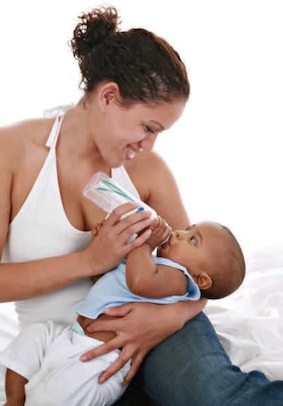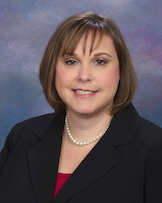Codex Alimentarius Commission Reduces Maximum Levels for Some Heavy Metals in Food
During the Codex Alimentarius Commission (CAC) annual meeting, attended by 170 countries, the European Union and 30 international governmental and non-governmental organizations, the CAC advised that they had reduced the maximum standard for lead in infant formula and had set a maximum standard for arsenic in rice.
 Codex Alimentarius – Maximum Levels of Lead in Infant Formula
Codex Alimentarius – Maximum Levels of Lead in Infant Formula
The CAC previously established a maximum lead standard in infant formula as listed in the Codex General Standard for Contaminants and Toxins in Food and Feed Codex Stan 193-1995 of 0.02 mg/kg. During the 2014 annual meeting this maximum standard was adapted to 0.01 mg/kg. This is being done because there is scientific evidence that infants and children are more vulnerable to the toxic effects of lead, particularly affecting the development of the brain and nervous system which can diminish their ability to learn. Lead is found in the environment naturally and as a contaminant from industrial processes. Lead levels in products can be controlled by utilizing raw materials from areas where less lead is present.
 Codex Alimentarius – Maximum Level Standard for Arsenic in Rice
Codex Alimentarius – Maximum Level Standard for Arsenic in Rice
In addition to reducing the maximum level standard of lead in infant formula, the CAC for the first time set a maximum level standard for arsenic in rice at 0.2 mg/kg. Arsenic is naturally and anthropogenically present in the groundwater and soils of the world. However, in some parts of the world arsenic can be found at very high levels. Long-term exposure to arsenic can cause cancer and has also been associated with heart disease, diabetes and developmental effects by damaging the nervous system and brain. The arsenic is taken up by the plants through irrigation or flooding of rice seedlings with ground water or through soil that is high in arsenic.
Testing for trace levels of lead, arsenic and other heavy metals in food is typically performed using an Inductively Coupled Plasma Mass Spectrometer (ICP-MS).
References:
– “UN strengthens regulations on lead in infant formula and arsenic in rice”, Food and Agriculture Organization of the United Nations (July 2014)
– CODEX General Standard for Contaminants and Toxins in Food and Feed – 193-1995, Food and Agriculture Organization of the United Nations
About SGS Food Safety Services
SGS is committed to keeping readers informed of regulatory news and developments. Leveraging a global network of laboratories and food experts, SGS provides a comprehensive range of food safety and quality solutions including analytical testing, audits according to the Codex verified approval scheme, certifications, inspections and technical support. The company continually invests in world class testing capabilities and state-of-the-art technology to help clients reduce risks, and improve food safety and quality.
For further information please contact the SGS experts.
Contact details:
SGS Consumer Testing Services
James Cook
Food Safety Technologist
291 Fairfield Ave, Fairfield
New Jersey 07004, USA
t: +1 973 461 1493
Email: [email protected]
Website: www.foodsafety.sgs.com
SGS is the world’s leading inspection, verification, testing and certification company. SGS is recognized as the global benchmark for quality and integrity. With more than 80,000 employees, SGS operates a network of over 1,650 offices and laboratories around the world.
To have more articles like this emailed to your inbox, become a GFSR Member today!

-
 FeaturedRisk management
The Cost of a Breach: What a Cyberattack Could Mean for Food Safety Recalls
FeaturedRisk management
The Cost of a Breach: What a Cyberattack Could Mean for Food Safety Recalls
-
 FeaturedRisk management
Securing the Food Chain: How ISO/IEC 27001 Strengthens Cybersecurity
FeaturedRisk management
Securing the Food Chain: How ISO/IEC 27001 Strengthens Cybersecurity
-
 FeaturedRisk management
Revolutionizing Food Safety Training: Breaking Out of the “Check-the-Box” Mentality
FeaturedRisk management
Revolutionizing Food Safety Training: Breaking Out of the “Check-the-Box” Mentality
-
 GFSI Standards
GFSI 2025: Building Trust, Tech-Forward Solutions, and Global Unity in Food Safety
GFSI Standards
GFSI 2025: Building Trust, Tech-Forward Solutions, and Global Unity in Food Safety
-
 FeaturedFood Safety
Integrated Pest Management: Strategies to Protect Your Brand’s Reputation
FeaturedFood Safety
Integrated Pest Management: Strategies to Protect Your Brand’s Reputation
-
 FeaturedFood Safety Culture & Training
No Open Door Policy: Challenges That Impact Pest Control in Food Processing Plants
FeaturedFood Safety Culture & Training
No Open Door Policy: Challenges That Impact Pest Control in Food Processing Plants


